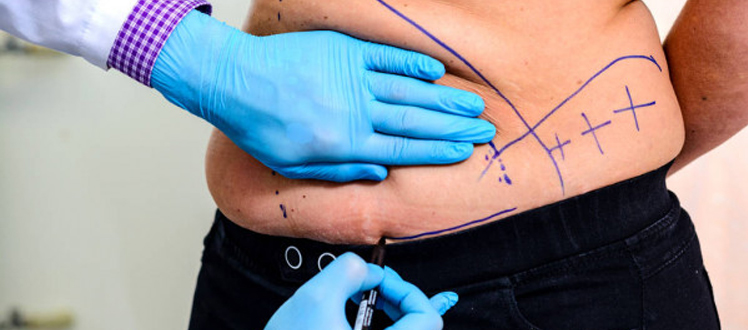Because of multiple pregnancies or significant weight loss, the stomach area can deteriorate : the skin can become distended, which often causes stretch marks. This can also happen to muscles of the abdominal wall, resulting in protrusion of the stomach. To correct tissue and tissue sagging in this area, surgeons recommend tummy tuck surgery, or abdominoplasty. Here is how you can determine if this procedure is suited to your case.

Is tummy tuck a viable option for you ?
Tummy tuck is the right choice if…
You will benefit from abdominoplasty surgery if skin in your stomach area is sagging significantly and if stretch marks have formed. If your belly is distended and forms a sagging apron hanging over your pubic area, you can also get rid of it durably with a tummy tuck. Patients who want to achieve a flat stomach with the help of tummy tuck surgery have to accept that the incision used to remove unsightly excess tissue from the stomach area results in a horizontal scar located in the lower stomach, which can easily be hidden by underwear and fades over time.
Tummy tuck is not the right choice if…
If you are planning on getting pregnant in the future however, it is preferable to postpone your surgery until you finish breastfeeding and have a stable weight since pregnancy could distort the improvement achieved with abdominoplasty. If you are considering tummy tuck surgery to lose weight, you’re probably misinformed. Abdominoplasty is not a weight loss treatment, it tightens up the abdominal wall by removing excess tissue to restore a flat appearance of the stomach, with no protrusion. Note that surgeons will refuse to proceed with surgery if you have failed to quit smoking 1 month or more before the procedure (you are also required to stop smoking during the recovery).
If you are a heavy smoker, you have to comply with this requirement to avoid additional risks of complications and to improve the wound healing process. If you are overweight, your surgeon will recommend reaching a healthy and stable weight before going ahead with surgery, because if you lose weight after the procedure, the improvements from surgery are likely to be annulled.





